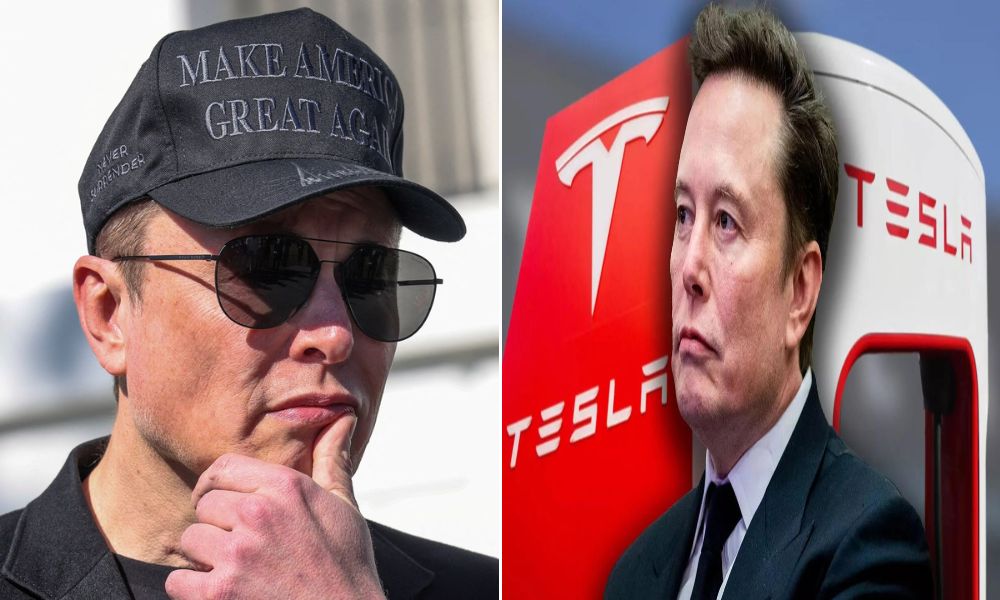WASHINGTON, Nov 19 (Reuters) – Members of the over 2 million-strong U.S. civilian federal workforce are looking to an unlikely source to protect it from Donald Trump and Elon Musk’s promise to slash government employees and cut costs: the incoming Republican-controlled Congress.
Federal employee unions are lining up lawyers and preparing public campaigns to try to stave off any mass firings, but they’re hoping Republican Congress members will join Democrats in defending their importance to local economies, health and safety, union members and government watchdogs tell Reuters.

Trump has tasked Musk and former presidential candidate Vivek Ramaswamy to head a panel to streamline the U.S. government and is expected to revive a plan to convert some federal employees to “Schedule F” status which ᵴtriƥs them of job protections.
Musk has said he could cut $2 trillion in spending, more than the annual discretionary budget; Ramaswamy recently proposed cutting 50% of the workforce by firing everyone whose Social Security number ends in an odd number.
Because the U.S. Congress sets federal spending levels, Republicans may balk at any erosion of their power, unions say.
Trump, Musk and Ramaswamy are “going to come up against congressional mandates and come up against the Constitution, and it’s going to set off this (debate) who has the right to spend money on behalf of the American people,” predicted Steve Lenkart, the executive director of the National Federation of Federal Employees, which represents over 100,000 federal employees.
The U.S. government is the country’s largest employer. While workers are concentrated in Washington, D.C., and nearby Maryland and northern Virginia, some of the greatest concentrations of federal workers can be found in areas like southern Oklahoma and northern Alabama, which are represented by Republicans in the House.

The biggest federal employees’ union, the American Federation of Government Employees, which represents 750,000 federal workers, is also looking to Congress, said Jacqueline Simon, the AFGE’s policy director.
Trump may ask Congress to refuse to spend money on government agencies that it has already approved, a process known as impoundment, to drive out workers, Simon said. “That’s something that we’ll certainly be looking to Congress for them to uphold their own interests in maintaining their ability to determine appropriations,” Simon said.
“The American people reelected President Trump by a resounding margin giving him a mandate to implement the promises he made on the campaign trail. He will deliver,” Karoline Leavitt, spokesperson for Trump’s transition team, said.
The Musk and Ramaswamy panel’s advisory role means its real power is still an unknown.
“It’s unclear what kind of authority it would have or what sort of legal oversight it would have,” said Michael Knowles, a U.S. Citizenship and Immigration Services (USCIS) employee who represents the agency’s workers at the American Federation of Government Employees union.
Many federal agencies, including USCIS, which has a massive backlog of asylum cases, actually have fewer employees than they need to run efficiently, he said.”I would certainly hope that all members of Congress, regardless of their political persuasion, would be, you know, protecting their prerogatives in our check and balance system to oversee the functioning of and the funding of government,” he said.
REPUBLICAN CUTS
Republicans won some modest spending curbs in a 2023 showdown with U.S. President Joe Biden, but since then have shown little interest in scaling back the largest federal employers.
The Republican-controlled House of Representatives this year voted to increase spending at the Department of Veterans Affairs, which employs 487,000 civilian workers, more than any other single agency.

Government watchdogs say they are hoping Congress will stop Trump from “purging departments he disagrees with ideologically, regardless of what that means for government efficiency or serving in the public interest,” said Joe Spielberger, policy counsel at the Project on Government Oversight.”This is an issue where we can push Congress to fully exercise its oversight authority,” he said.
A rule that Biden introduced in April to bolster protections for government employees could slow down any plans to slash employees.
It is “not an executive order that can be changed willy nilly by the next president,” Democratic Senator Tim Kaine of Virginia said. But the rule and Congress’ ability to block some Trump layoffs taken together represent just “a guardrail, not a guarantee,” Kaine said.“We are going to need not only Democrats but some Republicans battling against efforts to turn the federal civil service into a political loyalty spoils operation,” said Kaine.

Trump may have the backing of some courts, however. Last year, two judges on the U.S. Fifth Circuit Court of Appeals wrote that a president should have broad powers to fire government workers.
Whether there are Republicans in Congress willing to oppose Trump on the issue remains to be seen.”Where you have the three arms of government that are all on the same page, there’s not as many checks and balances, obviously,” said Lilas Soukup, president of an AFGE local that represents workers from the Centers for Disease Control and Prevention and the Department of Energy.


